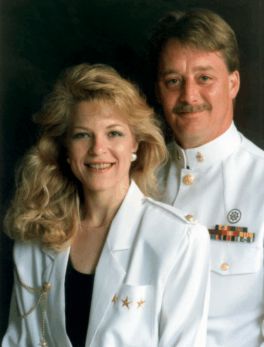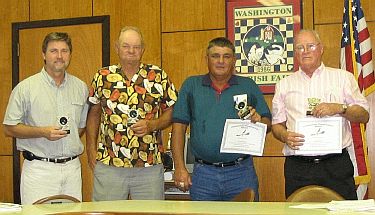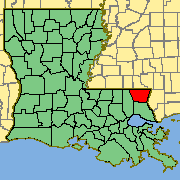Before deciding to write for "Hard Copy" I made a detailed study of owners Shawn Kelley, and his wife Lee. Here’s what I found:

Shawn Kelley is originally from Detroit, Michigan. He retired from U. S. military as a Navy Chief after 22 years service. He speaks English and fluent Italian.
Early in Shawn’s naval career, he went to Vietnam onboard a destroyer; the USS Cone. Shawn’s adventures with the Navy took him to many foreign locations. Serving his country included serving in Guam, Philippines, Japan, Italy, Spain, Greece, Canada, Portugal, and numerous other locations. Several of Shawn’s later years in the Navy were spent in Detroit where he served the Navy’s Recruiting District as Director of Advertising for the entire state of Michigan.
During the Gulf War, Shawn was recognized as the "Lynchpin" (or pivotal person) whose main responsibility was moving cargo into the Middle East while operating a deepwater NATO port located in Sicily, Italy. This Port, Augusta Bay, was commonly referred to by logistics people throughout the American and NATO Forces as "Kelley’s Place" as a code name.
Recognizing the intensity of the conflict back then, Shawn often arranged barbecues for entire ships on the pier. When ships came to port for more than a day, Shawn often arranged social events for the troops to relieve some pressure before they headed back into the conflict. None of what Shawn did to preserve troop moral was officially ordered.
After Shawn and Lee’s move to Bogalusa, they decided to name their print shop after the nickname of that Sicilian Port where they had both established many long lasting friendships amidst the crisis.
Working under heightened security risks, terrorist activity, and other intense pressure, Shawn together with the men that worked for him, strategically scheduled and tracked movement of over 315 million tons of repair parts, vehicles and supplies to ensure timely arrival at their destination to U.S. military bases in the Middle East. This later proved to be the largest total tonnage ever to be moved by the U.S. Military in such a short time frame. For this, Shawn received Navy Achievement Medal.
Lee Kelley, born and raised for part of her life near Oslo, Norway, speaks four languages fluently: English, Italian, Norwegian and Swedish. In her youth, Lee’s family moved to a small village in the interior of British Columbia. This had earlier become the home of her dad’s oldest brother. Lee’s dad, an avid outdoorsman, originally moved to Canada because through his older brother a picture had been painted of Canada as the ‘Land of Opportunity’.
Carrier Indians mainly populated this remote locale. Upon her arrival, Lee and her siblings spoke no English, nor were they prepared for what lay ahead – an adventure to say the least. After beating the language barrier, she was quick to engage in establishing relationships with the Indians and becoming very active in Sports. Lee learned to hunt, ice-fish, skin a moose, smoke salmon, and run from the bears. Winter activities like skiing, and snow-mobiling were her passion.
In later years, Lee relocated to Vancouver Island. Very well educated, Lee’s outstanding athletic talent was ice figure skating. For over 15 years she competed throughout western Canada and participated in numerous ice shows.
The Kelleys met on Vancouver Island while Shawn was stationed at a joint military test range. After marriage in Las Vegas, the Kelleys moved to Detroit, and later, to Italy.
Because of her Norwegian citizenship, it was impossible to obtain employment in the civil service overseas. Lee bided her time volunteering for one of the world’s largest global non-profit organizations headquartered in the United States. Recognizing her talents and dedication to people, causes, and political injustice, Lee was soon hired in a counseling capacity. A short time later, promoted to management, then upper-management. Within a year of gainful employment, Lee was promoted to the Executive level and served as Senior Executive Director serving the Mediterranean and South East Asia working under and exclusive memorandum of understanding with the United States Navy and Marine Corps, carrying the rank equivalency of a two-star Admiral. Lee made numerous television appearances and worked in radio promoting quality of life.
As a civilian, Lee had the privilege of serving with many of the Navy and the Marine-Corp leaders. Lee worked directly with Admiral Smith, Admiral Ryan, Admiral Redd, Admiral Johnson (now retired as vice-Chief of Naval Operations), Brigadier General Beans, Admiral Travers, Admiral Pappas, and Admiral Boorda’s staff, but her fondest and most respected memories are serving long term with Installation Commander, Captain Stephen R. Arends. Together they aggressively spearheaded issues and promoted a better quality of life for service families overseas by capturing the attention through leadership channels in Washington D.C., where Lee made numerous trips to reinforce the often gloomy position of service families and their needs.
Lee was recognized worldwide for many of her positive accomplishments and is well known for her respected reputation for getting things done. In her stacks of letters and awards is one that particularly caught my eye. This was a letter of Commendation from Admiral John R. Ryan, Commander, Fleet Air Mediterranean and Maritime Surveillance and Reconnaissance Forces, U.S. Sixth Fleet. The letter recognized Lee for "superior performance" and strong professional leadership, managerial expertise, and training to prepare over 10,000 members of the armed forces for deployment to Bosnia. Lee’s efforts for the North Atlantic Treaty Organization to Bosnia were paramount.
Glancing through the correspondence from some of the military’s most prestigious leadership, I saw words describing Lee as "very positive", "she’s still doing great things", "extraordinary", and "hard charging", and "exceptional professional ability". And finally, at the end of her nine years with the military a letter that said, "loved and remembered by many, missed by all."
Shawn and Lee met over 17 years ago and their 15-year marriage has produced two children. Shawn has three other children by a previous marriage and the Kelleys have a granddaughter, age 11. Why did the Kelley’s come to Bogalusa? After enduring both short and long term separations due to their respective careers, the Kelleys made a commitment to their children and being there with them to watch them grow up. The Kelleys had entertained Visions of "small town USA", wonderful climate, and convenience for a long time prior to relocating. They vacillated over the relocation for a long time, as their children spoke no English.
At the time the decision was rendered, the Kelleys had deep roots in Sicily. They owned two stores (a bath and body shop and a business center), and a newspaper. They hired competent management, took the plunge and never looked back. The Kelleys still maintain a small "home away from home" in Sicily in a historic little town called Motta Sant’Anastasia.
Recognizing the need for people to be heard in Washington Parish, the Kelleys started the Washington Parish Hard Copy. The weekly newspaper publishes, in detail, comments made at various parish political meetings plus letters to the editor, critical, informative or praiseworthy, signed or not, from the reading public. The paper's intent is to inform the public enough so that our elected officials will have overwhelming public feedback and finally receive the message that only good government is expected from them and that all records, itemized budgets and internal decisions formerly kept from public view are made available to parish residents.
In addition to Hard Copy: Since 1994 Kelleys publish The Signature, for the Naval Air Station in Sigonella, Sicily. The Signature has received awards for being the #1 Civilian Enterprise newspaper throughout the Navy. This full-color paper tells Americans stationed abroad what’s going on in their Italian and Navy communities helping them cross language barriers and offering them opportunities to buy and sell. Annually, the Kelleys publish "Benvenuti A Sigonella," a 64-page award-winning full-color, softbound magazine giving a guide to Naval Air Station newcomers. Look them up at www.sicily.navy.mil/signature. The Kelleys originally started their publishing business in 1992 with The Broadside, like our Timberland, in that it had mainly classified and other advertising. It became so popular the Navy asked them to apply for the base publishing 5-year contract. They are now into their second 5-year contract.
With Internet technology and a publishing manager in Italy they keep daily contact on newspaper operations from their Bogalusa business location. Their business, Kelley’s Place is well equipped to produce any graphic presentation. Specialties include: large format printing (5 feet by any length), digital color copies, photo enlargement and restoration, T- shirt printing, trophies, plaques, magnetic signs, graphic design, and web-site building.
Advertisers originally shied away from Hard Copy unsure of readership potential, but that's quickly changing. This paper is here for the long term. Anyone with something to say will find plenty of readership exposure in this newspaper. Our Magic Touch of Health massage studio weekly ad has resulted in many phone contacts and several new clients. I’m very impressed with quality of readership; and public interest and I wanted to share my advertising results with you.
Charles Rimes

























